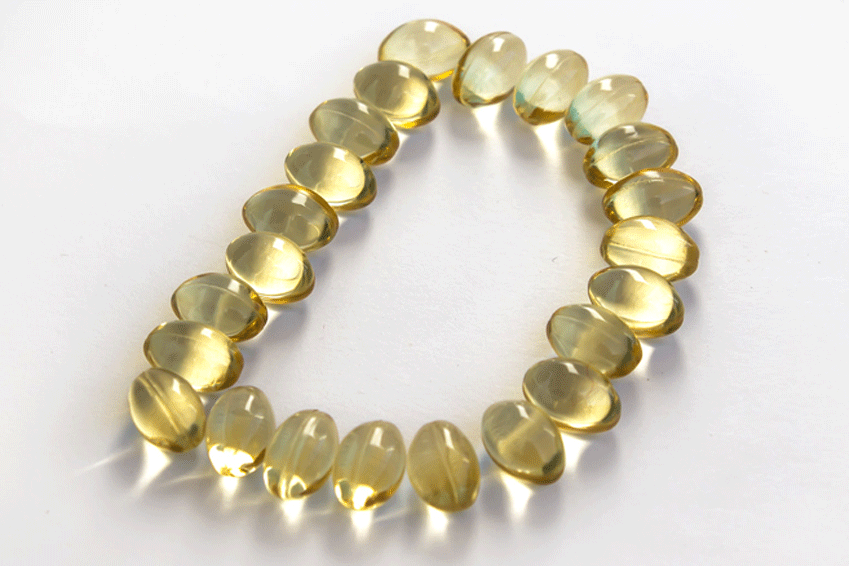According to the National Institute of Mental Health (NIMH), seasonal affective disorder, commonly referred to as seasonal depression, is a form of major depressive disorder that occurs only during certain seasons.
While it can strike during the summer, it is most prevalent during the fall and winter, according to NIMH. Symptoms include lacking energy, sleeping more often than usual, overeating and gaining weight, craving carbohydrates, and withdrawing socially, as reported by the NIMH.
While these symptoms are severe enough to be treated with anti-depressant medications, there are alternatives to taking a prescription drug. Whether you cannot afford another prescription or merely want to try a more natural remedy, several treatment methods can help you to treat the winter blues without having to see a pharmacist.

No. 1 – Supplement With Vitamin D
If the snowy winter months leave you feeling sad and lethargic, grabbing a vitamin D supplement could relieve your symptoms. In 2009, scientists for the journal Applied Nursing Research analyzed the impact of vitamin D supplementation among women with low vitamin D levels.
They found that after supplementing with vitamin D, the women’s scores on the Beck Depression Inventory scale decreased by an average of 10 points. An earlier study, published in a 1998 edition of Psychopharmacology, found that vitamin D supplementation increased positive moods among study participants.

No. 2 – Enjoy Lavender Aromatherapy
The scent of lavender could improve your mood during the Winter season. Researchers for a 2006 edition of the Journal of Korean Academy of Nursing found that after being exposed to 100 percent lavender oil for a week, female college students experienced a reduction in depression severity.
You can purchase a lavender essential oil and use it in a diffuser, or use drops of lavender oil in the bath to enjoy its anti-depressant effect.

No. 3 – Try St. John’s Wort
St. John’s wort is a supplement found in most grocery or drug stores, and the research suggests that it can be an effective treatment for depression. A review published in a 2000 edition of the Archives of Internal Medicine analyzed the results of eight studies and found that St. John’s wort was 23 to 55 percent more efficient than a placebo in treating mild to moderate depression.
While this supplement can be a useful remedy for depression, the National Institutes of Health has cautioned that it should not be used in combination with certain anti-depressant medications, as it can reduce their effectiveness, and in extreme cases, cause a lethal increase in serotonin levels.

No. 4 – Walkies!!
Winter temperatures might leave you inclined to stay indoors, but heading outside for a walk could be worth exposing yourself to the elements. Researchers for a 1996 edition of the Journal of Affective Disorders studied the impact of outdoor walking on a group of patients with seasonal affective disorder.
They found that after taking a one-hour outdoor walk every day for a week, 50 percent of the patients experienced a remission of their depression. The study authors concluded that outdoor light could be a suitable alternative treatment for seasonal depression.

No. 5 – Increase Omega-3 Fatty Acid Intake
Upping the amount of omega-3 fatty acids in your diet could provide you with relief from your Winter depression. Researchers for a 2007 publication of the Journal of Clinical Psychiatry studied the results of 10 different studies concerned with the relationship between omega-3 fatty acids and depression, and they found that omega-3 fatty acids did significantly reduce depression levels. You can add omega-3 fats to your diet by consuming more fish, or if you do not find seafood to be appetizing, you can take a supplement.
Whether you choose to take an omega-3 supplement or diffuse lavender oil to improve your mood, there are ways to treat your seasonal depression without seeing a doctor for a prescription. While the self-help treatment methods discussed here have shown themselves to be useful in the research, they should not take the place of advice from a medical professional.
If you feel you cannot manage your depression on your own, you might benefit from talking to your primary care provider, who could prescribe medication or refer you to a counselor or social worker for therapy.

